Image by Trulieve
Cannabigerol (CBG) is a compelling hemp-based cannabinoid which is growing in popularity among people living an active lifestyle. There are a variety of research-backed benefits of CBG, and we are here to explore all of the intricacies of CBG, its uses, benefits, and showcase compelling research pointing to this compound's efficacy. In the following piece we will explore the following questions:
- What is CBG?
- What does CBG do for you?
- Does CBG get you high?
- What are the side effects of CBG?
- Is CBG stronger than CBD?
Let's dive into cannabigerol and explore all of the intricacies which make this one of the fastest growing cannabinoids featured in products for mood, pain, anxiety, and other use cases.
What is cannabigerol?
Cannabigerol, CBG, is a non-psychoactive cannabinoid found in the cannabis plant, and it is considered to be the 'mother of cannabinoids' as all other cannabinoids are derived from cannabigerolic acid (CBGA). For example, CBDA and THCA start out as CBGA. Due to the fact that CBG eventually becomes other cannabinoids, CBG is primarily found in young cannabis plants. One way to interpret is that the CBD industry is largely supported by CBG.
Although CBG levels are relatively low even in younger cannabis plants, there is a significant contrast in levels found between different strains like White CBG. In most types of cannabis plants, however, the levels are no greater than 1% - which is significantly lower than the (roughly) 25% figure for each THC and CBD.
Due to the low quantities, CBG has been tested in genetic manipulation efforts in an attempt to increase the quantities produced. As a finished product, CBG is primarily found as a CBG oil but it can be found as CBG gummies, too.
How CBG works
Cannabigerol is processed by the endocannabinoid system (ECS), which is the part of the nervous system responsible for regulating homeostasis. Endocannabinoids are natural compounds made by the body, and CBG imitates these to interact with CB1 and CB2 receptors. It achieves this by binding them to other chemicals, which subsequently impacts brain activity by promoting and inhibiting certain reactions.
Homeostasis is when the body can remain in a stable place regardless of outside interferences that we all encounter every day. By imitating the natural endocannabinoids, CBG can alter the natural response to achieve a variety of outcomes depending on the intended use. This can include a range of physical and mental modifications.
The Reported Benefits of CBG
CBG has become an increasingly popular choice in recent years, not least because research continues to deliver clearer insights into its potential uses and benefits. Likewise, the growing popularity of cannabis products like CBD and CBN with a widespread audience has opened the door for consumers to consider complementary products like CBG gummies. As we explore further research into the benefits of CBG, it is important to always consult your primary care physician about taking CBG products for therapeutic and/or wellness purposes. This guide is meant to socialize the research-backed and pre-clinical benefits of CBG while also advocating for additional research of cannabinoids.
Cannabigerol is a neuroprotectant that shows potential to support new cell growth (neurogenesis). It may be attributed to the interactions with the alpha-2 adrenergic receptors, which are responsible for managing hyperactivity and pain.
Due to its neuroplastic attributes, CBG may also combat the motor deficits and other symptoms caused by Huntington’s Disease. Cannabigerol may also boost a user’s mood because it inhibits the 5-HT1A to prolong the activity time of serotonin. Some of the other proposed benefits of CBG are detailed below:
Managing stress levels*
The benefits of increased serotonin durations can naturally promote reduced stress levels. However, this is further supported by the fact that it inhibits glutamate and inhibitory γ-aminobutyric acid (GABA) neurotransmitter is another key factor. CBG has been shown to have even more potent impacts than CBD, which can promote a normal stress response.
Improved stress responses will indirectly yield a host of additional health benefits related to blood pressure, organ function, and general happiness. It can also yield improved sleep and improve cortisol regulation.
Reducing pain and inflammation*
Pain relief has been one of the chief functions of medicinal marijuana. CBG has been shown to have inflammatory properties while it has greater analgesic attributes than THC. when supported by the fact it inhibits GABA reuptake, patients can benefit from increased comfort and reduced pain.
The anti-inflammatory properties are experienced when applying CBG to the site of pain and can deliver quick relief. Meanwhile, consumption via ingestion may lead to lasting pain relief. Antibacterial properties have also been highlighted.
Anti-bacterial*
A study in 2020 revealed that CBG was anti-bacterial against a bacteria that causes staph infections. Early research may indicate broader application of CBG to benefit people affected by bacterial infections.
Relieve anxiety*
Products that utilize cannabis extracts have been used to manage anxiety, depression, and other mental health issues. CBG does not have the intoxicating properties of THC or other cannabinoids that produce a high. Therefore, it can be deemed a far safer approach to enjoying the therapeutic properties without the negative side effects.
The calming influence of CBG can work wonders for social anxiety, for example. While it’s not a cure for mental health issues, cannabigerol may be a useful tool for managing the symptoms.
Fight Inflammatory Bowel Disease (IBD)
CBG has been cited as a potential item for managing Inflammatory Bowel Disease symptoms, not least thanks to its anti-inflammatory properties. It additionally reduces the production of both nitric oxide and reactive oxygen species, which can promote improvements for digestive health for the millions of people who have chronic issues.
In addition to promoting healthier digestive systems, cannabigerol has also been highlighted as a way to increase a person’s appetite. Crucially, this outcome is achieved without the negative aspects of THC, such as craving junk food.

Does CBG get you high?
As confirmed by ScienceDirect, it is “nonpsychoactive and is a relatively weak partial agonist for both CB1 and CB2”. Due to this lack of psychoactive attributes, it will not get you high by itself. However, all cannabinoids may affect one person differently from another. Also, if CBG is combined with THC then the psychoactive properties of THC may cause a person to feel high.
Nevertheless, CBG products made by legitimate Farm Bill-compliant will be legally and technically defined as ‘non-intoxicating’, so they will not get you high.
CBG oil can have less than 0.3% THC levels to remain Farm Bill compliant. Given that even 0.3% is far below the threshold needed to create a psychoactive high, cannabigerol products can be used without fear of getting high. Furthermore, the potential benefits of CBG can be enjoyed without the threat of addiction.
It's important to analyze how CBG actually interacts with the brain, including the interactions with key receptors. This insight will underscore the uses and potential benefits of CBG.
How does CBG make you feel?
Just because CBG does not possess the high-inducing attributes of THC, it doesn’t reduce the interactions with the CBD receptors or impact the level of potency when looking at the proposed benefits. While it is still important to calculate the right dosage for other reasons, you will not feel high due to CBG usage. Instead, CBG's benefits can be felt in other ways.
According to pre-clinical trials, "CBG reduces intraocular pressure, possesses antioxidant, anti-inflammatory, and anti-tumoral activities, and has anti-anxiety, neuroprotective, dermatological, and appetite-stimulating effects. Several findings suggest that research on CBG deserves to be deepened, as it could be used, alone or in association, for novel therapeutic approaches for several disorders."
However, you may experience some of the responses, such as feeling happier due to pain relief, that are commonly experienced after a hit of THC.
What is CBG oil?
CBG oil is very similar to CBD oil, except the benefits of CBG are more pronounced. The process of making CBG oil begins with extracting cannabigerol from young cannabis plants, where the CBG levels are higher. The isolate will then be added to coconut oil or hemp seed oil, which are known as carrier oils, to create CBG oil. In some cases, CBG oil is mixed up with other cannabinoids or functional ingredients derived from plants. Once the CBG oil has been diluted with the carrier oil it can be used as a key ingredient in a range of suitable products.
How to take CBG oil
CBG oil is typically housed in a tincture which includes a dropper for proper dosing. It is especially important to pay attention to the amount of CBG ingested as well as the effects experienced from that amount. Typically, CBG oil is dosed in 1mL increments and the potency will vary based on the total amount of CBG contained in the full product. Start by taking 1mL of CBG oil, holding the oil underneath your tongue for 45-60 seconds, swallowing, and waiting 30-45 minutes for the desired effects to kick in.
Here is a list of other products featuring CBG:
- As a tincture, putting a few drops under the tongue.
- As an oil that is put into the bath.
- In gummies or other consumables.
- In a topical rub that is applied directly to the skin.
- As an oil that goes into a diffuser.
- As a capsule.
- In a vape pen.
When to take CBG oil
First, determine what your desired outcomes are from taking CBG. Then, ingest CBG oil approximately 45 minutes before you wish to experience those desired effects. If after 60 minutes your symptoms persist try taking an additional dosage, such as 1/2 of a dropper.
Is CBG stronger than CBD?
There are over 100 distinct cannabinoids that can be individually extracted from cannabis plants, and they are also very closely related, such as CBG and CBD. Despite this, there are clear differences in how individual cannabinoids affect humans. For example, CBG is more widely recognized as an anti-inflammatory and for its ability to help manage physical soreness or pain. On the other hand, CBD is more recognized for its benefits to help calm, relax, and enable sleep. CBG can have stronger effects than CBD for certain use cases, such as elevating mood or for managing chronic pain at proper dosages. The effectiveness and strength of any cannabinoid, including CBG and CBD, is highly dependent on the dosage, quality, and bioavailability of the product(s) being consumed.
Another resource for understanding the key differences for cannabinoid efficacy can be found in our comprehensive guide of CBN v CBD.
CBG has a chemical formula of C21H32O2 while its molar mass is 316.48 g/mol and its ChEMBL ID is 497318.
Other potential benefits of CBG
While research is still in its relative infancy, it has also been shown that CBG could play a role in fighting cancer cell growth, with a particular focus on colon cancer. Cannibingerol has also been linked to healthy metabolic processes to reduce the risk of obesity.
Further studies are continually conducted to help identify potential uses and benefits of cannabigerol.
CBG side effects
The lack of significant side effects is one of the main reasons that CBG has been heavily advocated in recent times. Any side effects are likely to be temporary and mild. Once again, it should be noted that it does not create the psychoactive ‘high’ that THC brings. In that sense, it is far closer to CBD.
While some users do not experience any side effects, the list of reported issues includes but is not limited to;
- Headaches
- Nausea
- Upset stomach
- Drowsiness
- Dry mouth
- Hunger
- Dry eyes
How to reduce the risk of CBG side effects
Education is the key to using CBG - or any other cannabis isolate - in a safe and effective manner. It is important to consider the intended function and benefits, as well as the dosage and frequency that may be required. Before taking cannabigerol, it is worth discussing the issue with a medical expert. Meanwhile, professionals like our friendly team can guide you through the different products on the market.
To reduce the side effects, the best tip is to start out with a low concentration and amount of CBG product. While most people tolerate CBG well without side effects, a controlled approach is crucial. Meanwhile, if using a topical rub, you should use it on an inconspicuous part of the skin first to check for potential allergies or reactions.
Our final thoughts on CBG
Cannabigerol (CBG) has arrived on the market as one of the fastest growing compounds available as CBG oil, CBG gummies, or even capsules. No matter the product type, the potential benefits of CBG extend to a range of issues including eye health, digestive health, and physical well-being. CBG interacts with the brain's receptors to produce calming, anti-stress feelings while also serving a host of other needs featured in this guide. If after reading our comprehensive guide on cannabigerol you are more inclined to try CBG products for your own well-being, please consider Slumber's highly effective, pure, and safe CBG gummies or CBG oil. Thank you for reading about CBG!

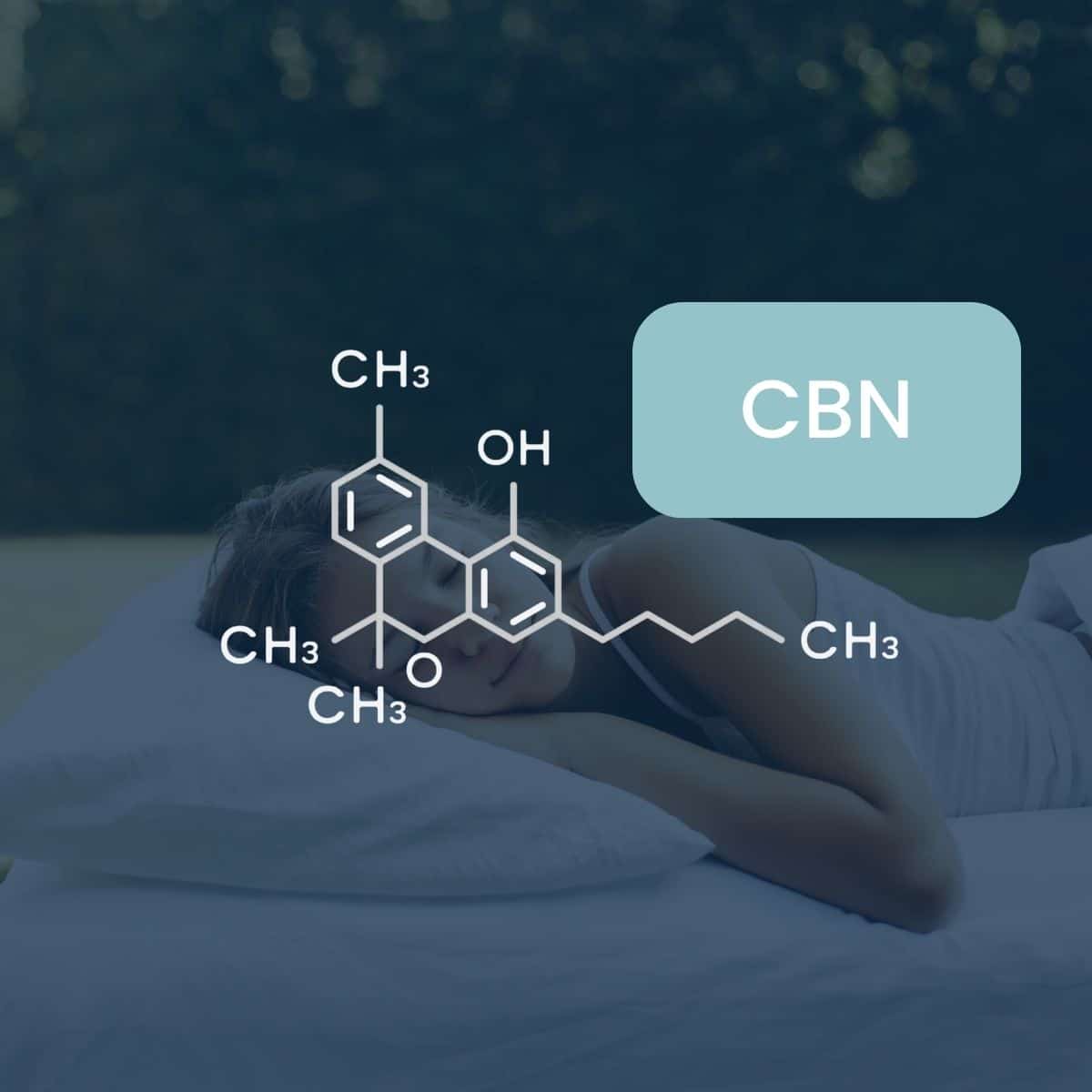
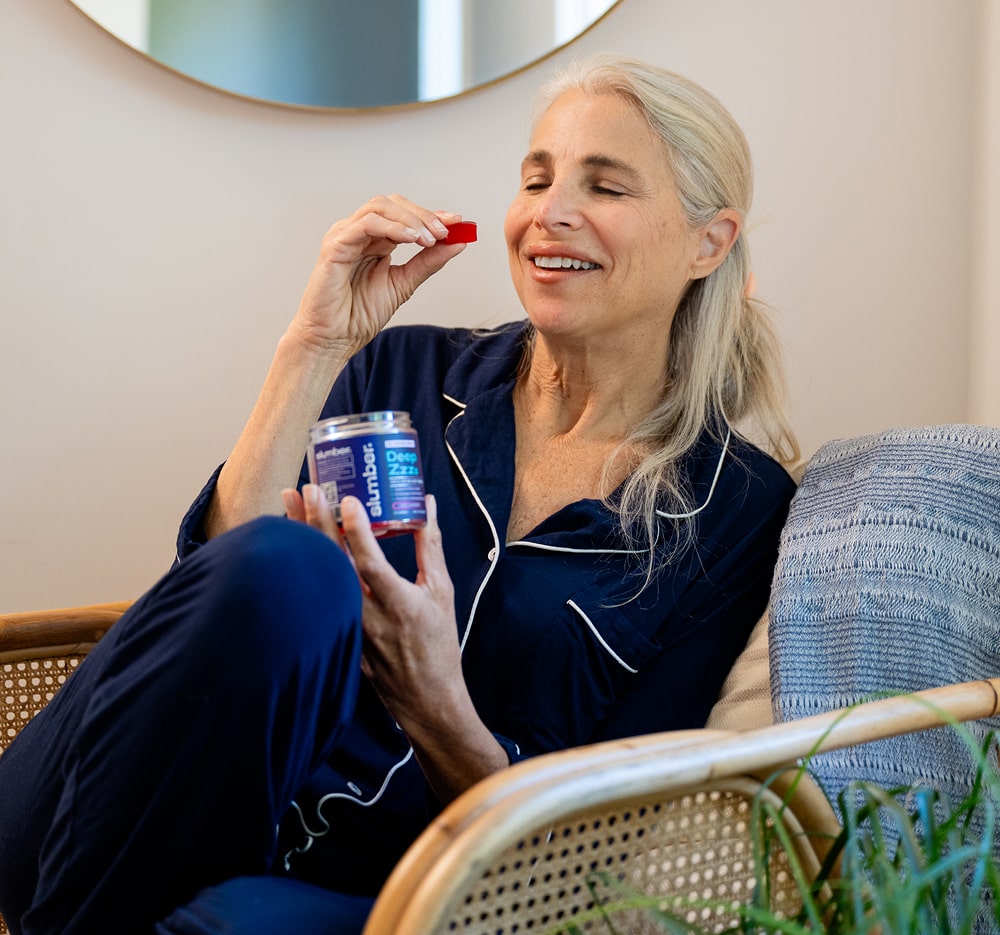
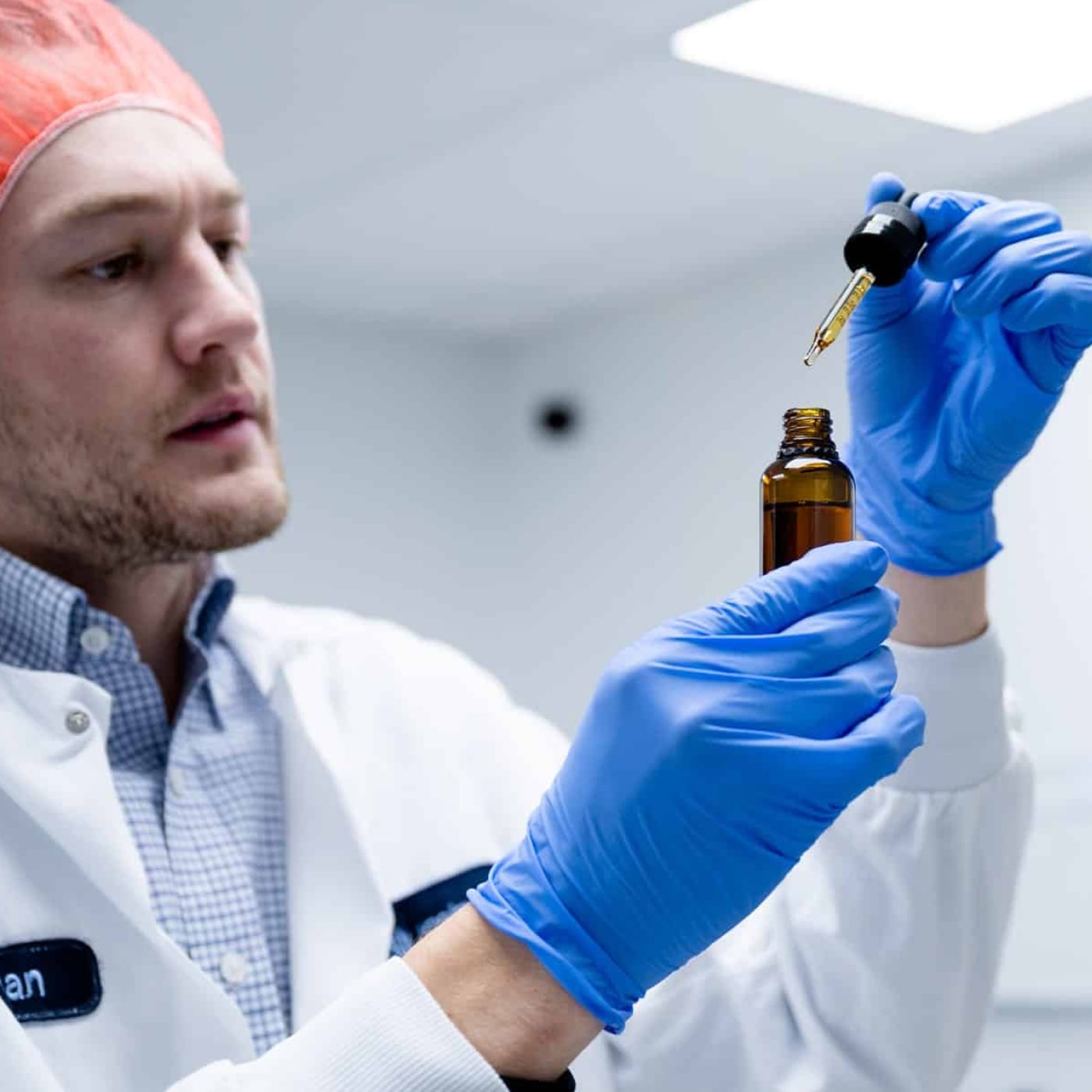




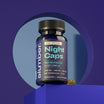
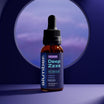
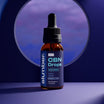
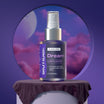
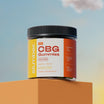
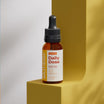

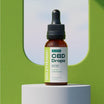



Leave a comment
This site is protected by hCaptcha and the hCaptcha Privacy Policy and Terms of Service apply.